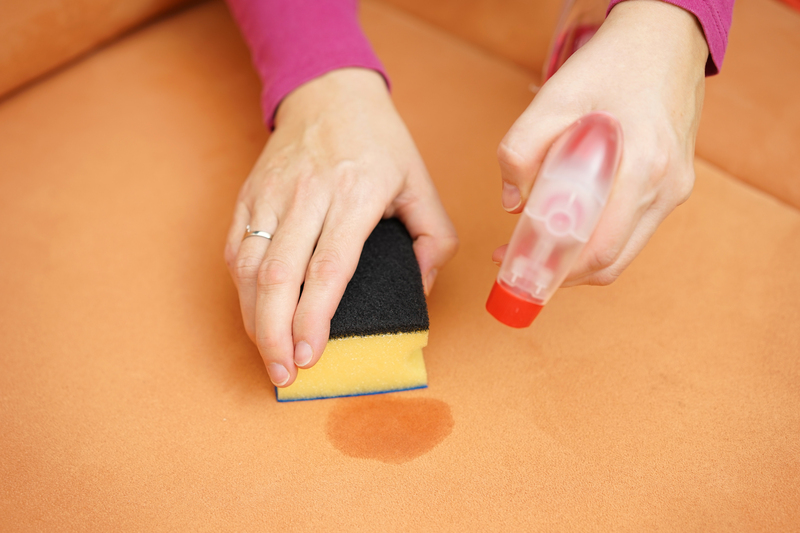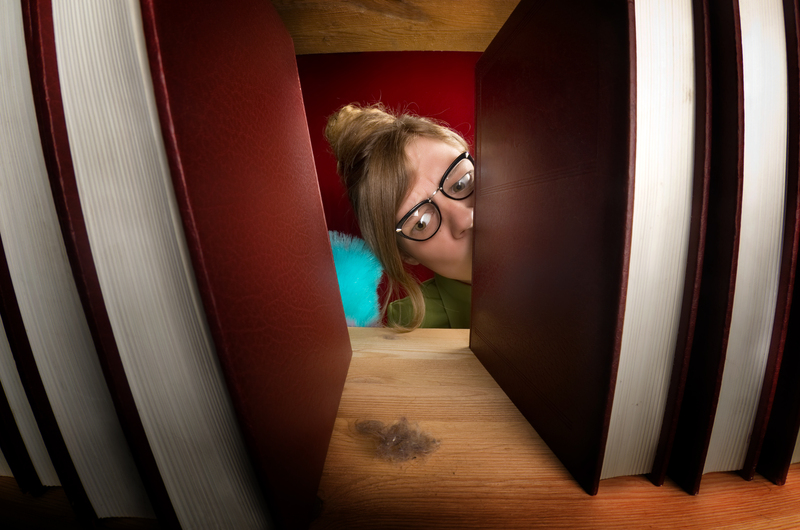Effective Methods to Remove Dust Mites at Home
Posted on 26/05/2025
Effective Methods to Remove Dust Mites at Home
Dust mites are microscopic creatures that thrive in warm, humid environments and are commonly found in house dust. While they are generally harmless, dust mites can trigger allergic reactions and asthma symptoms in sensitive individuals. Understanding how to effectively remove dust mites at home is crucial for maintaining a healthy living environment. This article explores various methods and strategies you can employ to keep these pesky allergens at bay.
Understanding Dust Mites
Dust mites belong to the Arachnida class, which includes spiders and ticks. These tiny organisms feed on dead skin cells shed by humans and pets, and they are often found in bedding, upholstered furniture, and carpets. Despite their microscopic size, dust mites can cause significant health problems, especially for people with asthma or dust mite allergies. Symptoms of dust mite allergies include sneezing, runny nose, itchy eyes, and difficulty breathing.

Effective Cleaning Techniques
Vacuum Regularly
Using a vacuum with a High-Efficiency Particulate Air (HEPA) filter is one of the most effective ways to remove dust mites from carpets and upholstery. HEPA filters are designed to trap small particles, including dust mites and their waste products. Vacuum your home at least once or twice a week, paying special attention to areas where dust accumulates, such as corners, under furniture, and along baseboards.
Wash Bedding Frequently
Since dust mites thrive in bedding, it's essential to wash sheets, pillowcases, and blankets at least once a week in hot water (at least 130?F or 54?C). This temperature is sufficient to kill dust mites and remove their waste products. Consider using dust mite-proof covers for mattresses and pillows to create a barrier between you and the allergens.
Steam Cleaning
Steam cleaning is another effective method for eliminating dust mites, especially in areas where vacuuming alone might not reach. The high temperature of the steam kills dust mites and removes allergens. Consider steam cleaning your upholstered furniture, carpets, and curtains every few months to maintain a mite-free home environment.
Controlling Indoor Humidity
Dust mites thrive in humid conditions, so controlling the humidity levels in your home is crucial. Aim to maintain indoor humidity levels between 30% and 50% using dehumidifiers and air conditioners. Use a hygrometer to measure humidity levels and make adjustments as needed. Additionally, ensure proper ventilation in areas prone to moisture, such as bathrooms and kitchens.
Utilizing Allergen-Proof Covers
Allergen-proof covers for mattresses, pillows, and box springs can be an effective barrier against dust mites. These covers are made of tightly woven fabric that prevents mites from penetrating and coming into contact with your skin. Make sure to choose covers that are specifically designed for allergen control and follow the manufacturer's care instructions to ensure longevity and effectiveness.
Reducing Clutter
Dust mites need a place to hide, so reducing clutter in your home can significantly decrease their numbers. Get rid of unnecessary items that collect dust, such as knick-knacks, stuffed animals, and piles of magazines or books. Opt for easy-to-clean furnishings and keep surfaces clutter-free to make dusting and vacuuming more efficient.
Choosing the Right Cleaning Products
Allergen-Revealing Sprays
These sprays can help make invisible allergens visible, allowing you to clean more effectively. Simply spray the solution on surfaces and watch for any color change that indicates the presence of allergens. Use a damp cloth to wipe the area clean, removing both the spray and the allergens it revealed.
Anti-Allergen Cleaning Products
Specialized cleaning products are available that neutralize the proteins found in dust mite waste, making them less likely to cause allergic reactions. These products can be used on various surfaces, including carpets, upholstery, and bedding. Follow the manufacturer's instructions for the best results.
Air Purification
Investing in a good-quality air purifier with a HEPA filter can significantly reduce airborne dust mites and other allergens. Place the air purifier in commonly used rooms, such as the bedroom and living room, to improve air quality and reduce allergy symptoms. Remember to clean or replace the filters regularly, as maintenance is key to the purifier's effectiveness.
DIY Remedies
Baking Soda and Essential Oils
A mixture of baking soda and essential oils can be an effective homemade remedy for dust mites. Baking soda helps to absorb moisture and deodorize surfaces, while essential oils like eucalyptus or tea tree oil have natural mite-repelling properties. Sprinkle the mixture on carpets, mattresses, and upholstered furniture, let it sit for at least 15 minutes, and then vacuum thoroughly.
Vinegar Solution
A solution of white vinegar and water can be used to clean hard surfaces and reduce dust mite populations. Vinegar is a natural disinfectant that helps to remove allergens and other contaminants. Mix equal parts of white vinegar and water, apply it to surfaces with a spray bottle, and wipe clean with a cloth.
Pet Care
Dust mites can also thrive on pet bedding and areas where pets spend a lot of time. Wash pet bedding regularly in hot water, and consider using allergen-proof covers if your pet sleeps on your bed. Groom your pets frequently to reduce the amount of dander and dead skin cells they shed, which can contribute to dust mite populations.

Professional Help
If you find it challenging to control dust mites despite your best efforts, consider seeking professional help. Pest control services can provide more advanced solutions, such as specialized treatments for severe infestations. Additionally, professional cleaning services can offer deep cleaning options like steam cleaning or hot water extraction to eliminate dust mites from your home.
Conclusion
Dust mites are a common household allergen that can cause a range of health issues for sensitive individuals. By understanding how to effectively remove dust mites at home, you can significantly improve your indoor air quality and reduce allergy symptoms. Regular cleaning, controlling humidity levels, using allergen-proof covers, and investing in air purification are just a few of the many strategies you can employ to keep dust mites at bay. Remember, consistency is key to maintaining a dust mite-free home, so make these methods a part of your regular cleaning routine.









